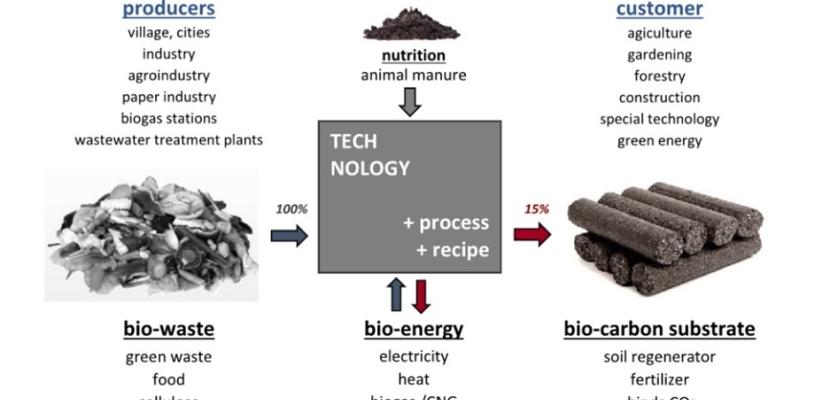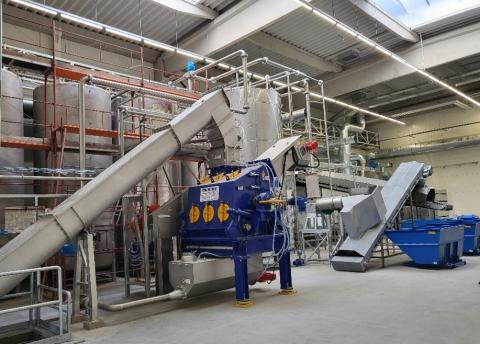
Innovative biochar-based approaches to soil regeneration and fertilisation

About this good practice
Utilizing circular economy for kitchen, agri, and industrial waste, and transforming it into green energy and regenerative soil substrate.
Resources needed
The Biograda project has received several grants from EU, has been awarded the Seal of Ecellence by the EC, grants from Ministry of Environment & the Ministry of Economy - the total amount of public support = EUR 10 million.
Evidence of success
Technological complex is patented in 58 countries, biochar substrate in 54 countries.
It has been awarded the Seal of Excellence in the EU.
In the pilot plant in Horní Jatov, kitchen waste from the capital is treated for 500 thous. and green and kitchen waste from a region of 200,000 inhabitants. The plant sells part of its energy to the public grid.
Laboratory results have been published in prestigious journals collaborations with several foreign universities in the form of EU projects
Potential for learning or transfer
Adopting BIOGRADA's practices in EU regions offers significant benefits. By converting bio-waste to biochar, cities can reduce landfill waste, aiding EU waste reduction targets and fostering sustainable urban development. This approach revitalizes soils, enhancing agriculture and local food security. It also aligns with EU goals for renewable energy and carbon neutrality, contributing to climate change mitigation. The project stimulates local economies through job creation in green sectors and drives innovation in waste management and renewable technologies. BIOGRADA's model makes EU cities more sustainable, resilient, and self-sufficient.
For a plant in Slovakia, total investment costs were about €50 million for processing cca 120,000 tonnes of bio-waste per year, producing 42,500 MWh of energy, 6,800 t of liquid bio CO2 and 20-25,000 bio-carbon substrate. Possible obstacles to be considered – e.g. need of numerous patents. Project is scalable from 15+ k tones of biowaste.


